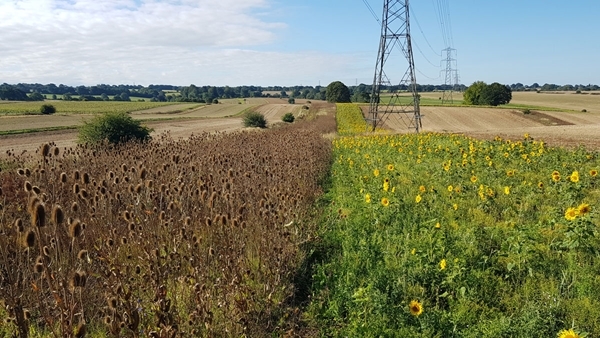
By Henrietta Appleton, GWCT Policy Officer (England)
“Labour cannot win the country, without winning the countryside”. So said Labour leader Sir Keir Starmer at the NFU Conference in 2022. To his credit he was the first to do so since Gordon Brown well over a decade before. In a poke at a previous Environment Secretary, who turned up to see flooding without any wellies, he claimed to own a pair and was keen to visit farms and talk to farmers. Two invitations from our chairman and former farms minister, Sir Jim Paice, to visit the GWCT Allerton Project remain unanswered.
So what are the parties promising our farmers and land managers?
Labour has promised a new deal for farmers with measures such as a veterinary agreement with the EU to cut costs and red tape for food exports, promotion of regenerative farming through ELMS and supporting homegrown food through public procurement.
In addition, they regard farming and the environment as complementary priorities and have committed to make ELMS work and to introducing a land use framework to map land and its allocation to nature recovery, food and other uses. On the environment they promise a ban on bee-killing pesticides, new national forests and 9 new national river walks as part of a wider commitment to increased access to nature and on nature conservation the expansion of nature rich habitats such as wetlands and delivering on the Environment Act and 30by30 targets.
But no details on budget and in the manifesto the farming, wildlife and environment measures were listed under Energy/Net Zero!
Prior to the election announcement, whenever asked what Labour’s priority for the countryside was, Labour shadow ministers have trotted out the line “there’s a clue in our name” referring to rural employment. That’s encouraging as hunting, shooting and fishing create a great deal of that.
The Liberal Democrats demonstrated that food and farming are important in their 2023 policy paper and their manifesto included chapters on the natural environment and food and farming. Their manifesto reiterated their commitment to immediately increase the ELMS budget to £3.4bn (from £2.4bn) with a range of other public money for public goods programmes contingent on opting into ELMS and that farmers receive proper independent advice.
The LibDems also promise a national food strategy and ensuring farmers receive proper independent advice. On the environment they want to double the size of the protected area network, introduce a new designation of National Nature Parks, use Local Nature Recovery Strategies to identify a new Wild Belt for nature, double woodland planting, ban routine heather burning and introduce up to 100% biodiversity net gain for large developments. They also committed to a sewage tax and a blue corridor programme in support of rivers, streams and lakes alongside marine protected areas.
Both the LibDems and Labour committed to finding humane alternatives to the badger cull in controlling Bovine TB.
The Conservatives have sought to emphasise continuity in their farming measures to develop the post-Brexit policy framework through the continuation of the Farm to Fork summits, commitments to innovation and agri-tech, a land use framework and animal welfare measures such as livestock worrying.
To this they have added a legal target for food security, the ring-fencing of agricultural funding, an additional £1bn over the parliament for UK-wide farming, protection of best agricultural land from solar developments and 50% of public food expenditure on local food.
On the environment they plan the creation of a river recovery network funded by water company fines, an 11th national park and more access to nature although this won’t be a right to roam, alongside a continued commitment to funding for tree planting and peatland restoration.
The manifesto did include sections on farmers and fisheries, the environment and the rural way of life.
But are these the messages farmers and land managers wish to hear?
In some senses yes as all are committing to the evolution of ELMS alongside sustainable food production. That in itself is good, because it’s uncertainty land managers don’t like, particularly when planning conservation measures which take months or years to deliver.
But from the GWCT’s and land managers perspective the devil is in the detail in how these ambitions are delivered. Whilst the top line ambitions relating to nature conservation are welcomed the commitment by Labour to ban snares and the LibDems to ban the routine burning of heather on peatlands is a concern as our science has shown that both these management methods are important in wildlife conservation – and in the case of heather burning peatland conservation too.
In the case of farming, reductions in the use of artificial fertilisers and pesticides must be balanced with the development of practical alternatives and the ambition for farming to drive environmental improvement must be balanced with supporting food production. The two are compatible but it requires detailed management and planning – both costs that ELMS needs to account for.
In part 2 of our Winning the Countryside blog, in line with many other stakeholders, we will set out our suggested solutions to the future of farming and the countryside in the hope that our evidence-based approaches will gain traction in the delivery of the ambitions of the next government.